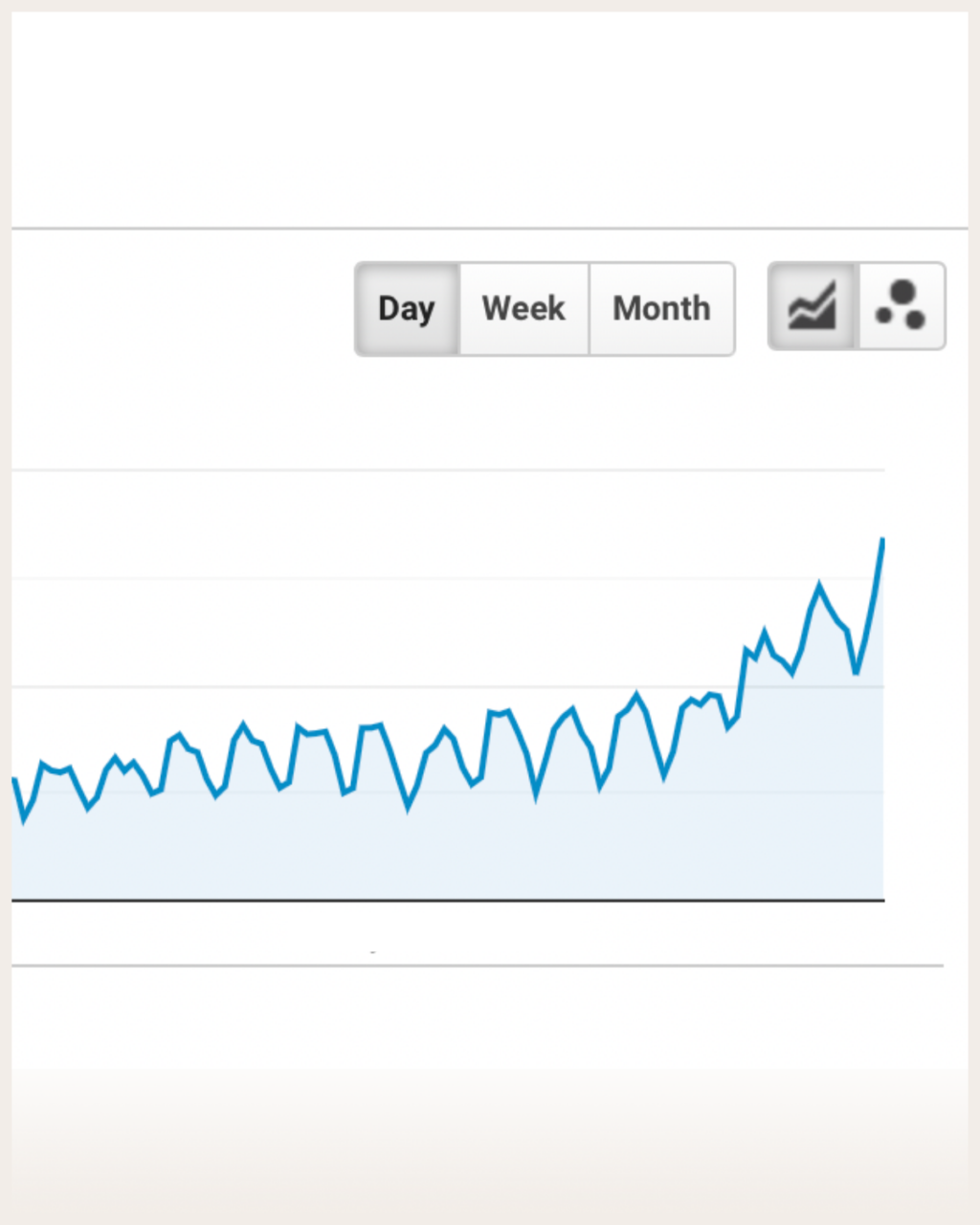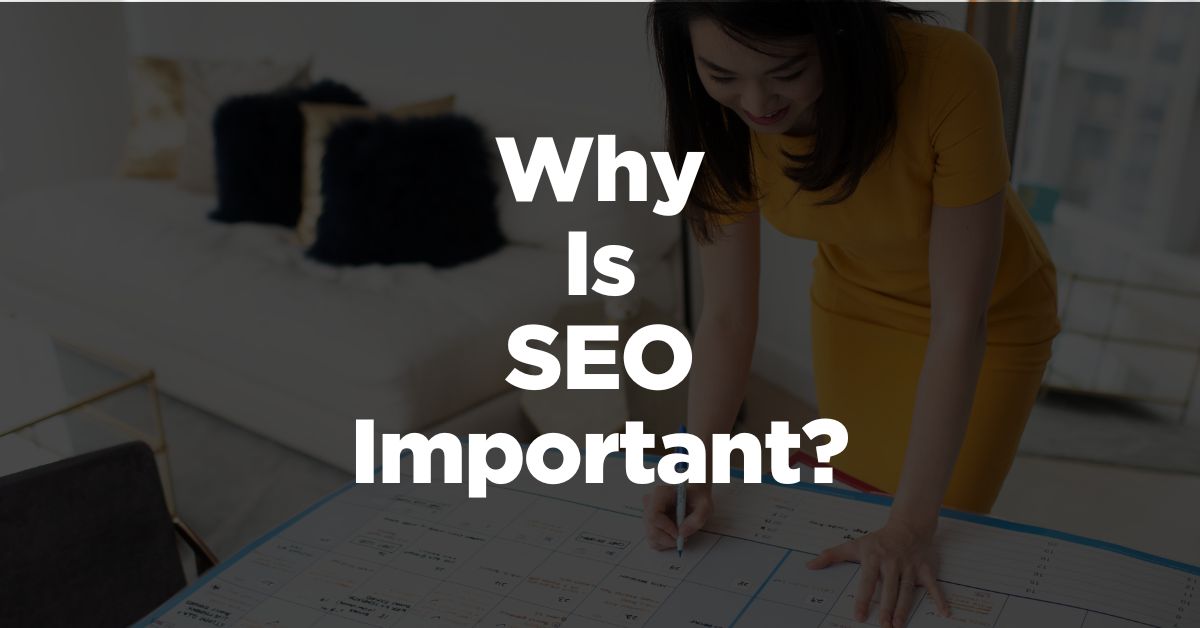Wondering why SEO is important for your business?
You’re in the right place. SEO can be an incredibly profitable and scalable marketing strategy.
But how exactly can you use it to grow your business – and is it even worth it for you?
Read on to learn more.
In this article, we’ll discuss:
- Why is SEO important?
- How does SEO work?
- What are the top benefits of SEO?
- What are the most important elements of SEO?
What is SEO and why is it important?
So, what is SEO?
SEO – search engine optimization – means optimizing your website so it ranks on search engines like Google.
And why is SEO important?
If you can raise your rankings on search engines, you can increase organic traffic and, that way, sales.
‘Organic traffic’ doesn’t refer to the actual ads you see in search results – but the organic results in results rankings.
That’s why marketers place SEO in their top three ways to promote a business.
And because SEO is organic and not paid, the traffic you get can be highly profitable.
Take my website for example. After working on my SEO for two years, I made it into a multiple six-figure marketing channel.

But here’s the thing about SEO. The importance of SEO changes depending on where you’re at.
For example, SEO was very low on my priorities when I just started out.
Why? Because SEO takes time. So when my business was new, I focused on faster marketing strategies to get those first-paying clients.
But if you’re ready to scale, SEO can have a huge ROI.
How do you get results, though? Let’s take a look.
The 4-Step Automatic Attraction System
for attracting more clients daily... without paid ads, social media, or "hustle"!
How does SEO work?
To understand how SEO works, you need to understand how search engines work.
Most search engine algorithms (such as Google’s) work by crawling websites to see which content will answer the user’s query.
And that’s where SEO comes in – it’s the process of optimizing your website with signals that the algorithm understands.
How does SEO work, though?
With techniques like:
- Content optimization -– Creating really good content
- Link building – Getting mentioned on other, relevant, and high-quality websites
- Technical SEO – Improving the usability of your website, including things like how fast your pages load
Over time, these signals show Google and other search engines that your website is trustworthy so your content will rank in your niche.
We’ll talk about each of those techniques in detail later.
For now, let’s talk about the benefits of SEO.
The top benefits of search engine optimization
So why is SEO important for your business? Here are the main benefits:
1. More website traffic
Google is one of the biggest websites on the internet, with millions of search queries happening every day.
SEO helps your website climb the rankings on Google search results so more of your ideal customers see your website.
Higher rankings tend to correlate with higher clicks to a website. So some of these people will click through to your site and that’s how you get traffic. And if you drive the right traffic (people who are interested in buying from you), you increase sales.
Getting this traffic through other sources like ads can be a big investment and not as profitable as organic traffic from search engines.
2. Higher quality leads
SEO is about building organic (“free”) traffic to your website instead of paid traffic.
That’s when you pay for traffic using social media or Google ads.
Typically, paid ads have faster results than search engine optimization because it takes longer to build your SEO. Paid ads can deliver results much faster.
But there’s a catch to paid traffic – the leads tend to be better with organic traffic.
Why? If your customer clicks through to your website, they’re more likely to be interested in your work.
Contrast that to an ad that leads to a page that isn’t necessarily as good as the organically ranking page and doesn’t always meet the searcher’s needs.
3. Trust and credibility
Take a look at the top search results for a search query in your niche.
The websites listed are likely trustworthy websites like major publications or credible brands.
That’s because Google’s algorithm is designed to only show the most authoritative and helpful content from the best sources.
So if your content ranks high in search rankings, it adds credibility to your business.
For example, a lot of people will say they’ve seen my website in tons of search results and that’s a reason they decided to buy from me – because it ranks for plenty of online business keywords.
And, by creating helpful content, you build authority and trust with your audience. People will see your expertise and are more likely to buy from you.
4. A better ROI
Organic traffic is a highly profitable traffic source for one reason:
You don’t pay for the actual traffic.
So once you’ve optimized your website for search engine results, you can continue to benefit from increased traffic and leads for years to come.
Yes, a few pieces of content can keep driving traffic and bringing in consistent sales.
And, as you continue to publish good content, your rankings improve and your ROI tends to increase over time.
Compare that to paid ads.
With paid ads, you have to keep spending money to see a return.
5. Improved user experience (UX)
SEO isn’t just about writing blogs for your audience (although that does help).
Part of it is the technical side of your website.
Google prefers to rank websites that are easy to navigate and fast to use for the user.
But this doesn’t just impact your rankings – your website’s user experience impacts sales, too.
For example, did you know that for every extra second it takes for your website to load on mobile, your conversion rate can fall by up to 20%?
Sounds like a lot but that’s the truth. If your website is too slow, visitors are less likely to stick around. Even if you have the best solution to their problem.
So when you start focusing on SEO, you also improve the user experience for your visitors overall. Better UX means a more pleasant experience for your potential customers and more sales.
6. Better PR
One of the best ways to build SEO is to get backlinks. Backlinks are referral links from other relevant, high-quality websites in your niche.
They show Google your content is so good others want to link to it.
But backlinks aren’t just great for improving your search ranking.
They also boost your profile in your industry.
For example, my website has been featured on sites like Business Insider, Bloomberg, Forbes, and Money.
Those backlinks are great for showing Google that I’m an expert in my field, but even better for marketing my business to the thousands of people who will read the articles on those websites and see my quotes.

7. Market research
A key part of SEO is keyword research (which we’ll talk about later).
Keyword research is basically finding out what your audience is searching for to find businesses like yours.
What…
- Questions are they asking?
- Problems are they trying to solve that you can help them with?
- Words do they use to describe your services and products?
- Trends are there in your industry?
You use keyword research to create a content strategy. But it also helps you understand your audience better, what products they’re looking for, and so on.
This information helps you improve your marketing strategy overall.
8. Better marketing strategies
SEO is a great marketing strategy by itself. But it can also work together with other marketing strategies to maximize your efforts.
Take pay-per-click ads for example.
You can retarget those people who have previously visited your website.
Those people are more likely to buy from you because they’ve already visited your page and are somewhat familiar with your brand.
9. More flexibility
Organic traffic can help you create a more sustainable and flexible business.
Contrast SEO with ads or social media.
The thing about those strategies is that you have to put in so much work every day and week to keep them running.
It’s a constant cycle.
But with SEO, your efforts stack up.
I built my SEO to a multiple six-figure marketing channel by just posting one high-quality blog post per month. I also use social media, like YouTube – and there I have to post daily shorts every day to be competitive.
Now, I LOVE creating content that helps people so YouTube Shorts are great.
But SEO is one of the top sales drivers in my business. So even if I take a month off from social media, I still get traffic and make sales from my blog content.
10. Improved scalability
SEO is highly scalable.
How?
Well, in every niche, you have a lot of keywords to tap into.
Sure, some are more competitive than others, but you can target as many as you want and won’t spend and you won’t pay the more traffic you get.
In fact, it works in the exact opposite way to ads.
The cost decreases and profitability increases the more traffic you get.
But to make the most of SEO, you need a solid strategy.
In the next section, we’ll talk about the important elements of SEO so you can design a strategy that works.
The 4-Step Automatic Attraction System
for attracting more clients daily... without paid ads, social media, or "hustle"!
The most important elements of SEO
Want to build an effective SEO strategy?
The most important elements of SEO are:
- Keyword research
- Keyword optimization
- Content quality
- Technical SEO
- Website structure
- Link building
- Local SEO
Let’s take a look at each in detail.
1. Keyword research
Keywords are search terms that your audience uses to find content in your niche.
You need to find the keywords your audience is looking for – and that’s what you do with keyword research. Now, as we’ve discussed, there are tons of relevant keywords in your niche.
But you might be thinking, how do you know which keywords to choose?
That’s where the competitiveness of a keyword comes in.
Low-competition keywords are the ones you’re most likely to rank for if you have a newer business. These are search terms that have some traffic but fewer businesses are targeting them.
However, the keyword also needs to target your audience.
For example, if you sell running shoes, “cheap running shoes” isn’t a great keyword unless that’s what you sell. It’s a low-competition keyword but only people who are looking for cheap shoes will be using this keyword.
So that’s the type of keyword you’re looking for.
But how do you look for them?
I recommend using a tool. There are paid tools like Ahrefs and Semrush which will show you competition scores for each keyword, as well as related keywords.
You can also use a free tool like Google Keyword Planner.
By inserting a keyword like “running shoes,” you find relevant keywords to use.
For more on keyword research, check out my video:
Now you have a shortlist of keywords, let’s optimize your content.
2. Keyword optimization
Keyword optimization is fairly simple.
First, write blogs that target each keyword on your shortlist. One keyword for one piece of content.
Now, you should create content for humans, not search engines.
Just like Google says in its own documentation:
“People-first content means content that’s created primarily for people, and not to manipulate search engine rankings.”
That means creating content that has an intended audience and actually helps your readers in some way; otherwise, the content won’t be very helpful and your traffic will suffer.
But let’s be honest. There’s a certain way of creating content that makes it easier for Google to understand. That way, your website is more likely to rank.
To optimize content for the target keyword, you need to mention the keyword in:
- Title tags
- Meta descriptions
- Headings
- Body of text
But there are more ways to use keywords to optimize your content.
To take things to the next level, you can use a tool like SurferSEO.
SurferSEO analyzes your content and gives you suggestions on how you can optimize your content even more.
That said, no one tool will “save” your content. Think first of your reader and next, how to optimize your content.
3. Content quality
Now let’s look at the quality of your content.
You need quality content to rank.
But quality isn’t just the amount of information you include.
High-quality content is also:
- Well-written
- Engaging
- Clear
- Helpful
- Well-designed
For more, Google’s quality rater guidelines show you exactly what Google wants your content to look like.
4. Technical SEO
SEO isn’t just about content.
The technical aspects of your website are important too. A well-performing, secure website offers a far better user experience, which means Google serves its audience the best content.
A few things that will make your website perform better:
- Page loading speed: Slow websites create a poor user experience – and that’s why slow websites often don’t rank high on Google. For example, image size impacts how fast your website loads.
- Mobile-friendliness: Test out your web design on mobile so you can see how user-friendly it is. Most templates on WordPress allow you to optimize the mobile version.
- Security: Make sure you use a secure host with an SSL certificate.
- Broken links: Again, if your website is full of links that don’t lead to their intended source, that’s a bad user experience. You can use Google Search Console to crawl your website for any broken links. Fix the links or delete them.
- Non-performing contact forms: If you have any contact forms on your website, check them regularly to make sure they work. Want to check if your website has any technical SEO issues?
Try GTmetrix. It’s a free tool that will show you issues on your website and how to fix them.
5. Website structure
Now for your web design. How easy is it for visitors to find what they are looking for?
To improve your rankings, your website needs to be easy to navigate for users and search engines.
My advice? Keep it simple.
Use a clear structure. Start with your homepage and add a menu bar. Then from your menu bar, link to your different pages, such as your About or Blog page. And then, add another level with links to your blog posts or sub-pages.
Typically, your users should be able to find content with no more than three clicks.
So that’s internal linking. Let’s talk about external linking next.
6. Link building
By now, you know that having backlinks from high-authority websites in your industry shows Google that you’re a trustworthy source.
But how do you get those backlinks?
Two relatively simple strategies for beginners are to guest post on popular blogs or get interviewed on podcasts.
Reach out to relevant publications in your niche and pitch some guest content you can make.
You can also build backlinks by answering journalists’ questions on Connectively or Featured.
When you’re further along, SEO tools like Moz can help you see backlink opportunities too by analyzing your competitors.
7. Local SEO
Local SEO means optimizing for search results specific to a local area.
Now, if you have an online business, this doesn’t really matter.
But if you have a physical store or a local audience, working on your local SEO helps you tap into that audience.
How do you do it?
Start by creating a Google Business profile, which is similar to a digital storefront.
Then, add local keywords to your SEO strategy. For example, if you’re a photographer in Los Angeles, target keywords like “LA portrait photographer.” This will help people in the local area find you.
You can also reach out to local businesses and publications to build backlinks within your area, such as local media outlets or other businesses.
Next steps
Why is SEO so important? Now you have the answer.
The 4-Step Automatic Attraction System
for attracting more clients daily... without paid ads, social media, or "hustle"!
SEO can have a huge impact on businesses by creating a steady stream of organic traffic. Your business stops relying on you and instead, you build a more sustainable and profitable business that truly offers you freedom and flexibility.
That’s what I did and how I created a business I can spend a few hours a week working on. And in the process of doing so, I figured out the best way to use SEO to build your business.
Want to learn how?
Get my 4-step system to get customers to find you – without having to publish on social media every day or rely on ads.
Read more:
Top Reasons Why You Should Invest in SEO
How to Hire an SEO Expert or Agency
What is SEO Consulting? (+ How Can It Help You)








